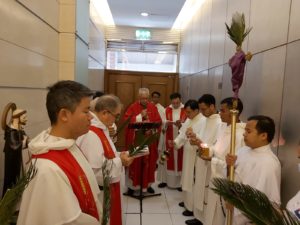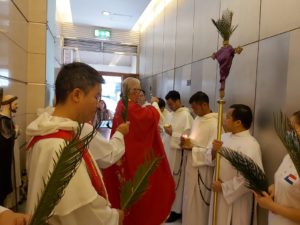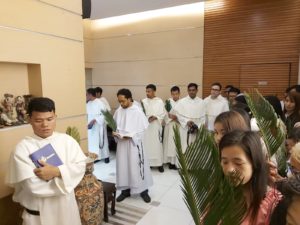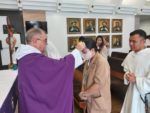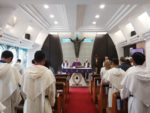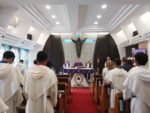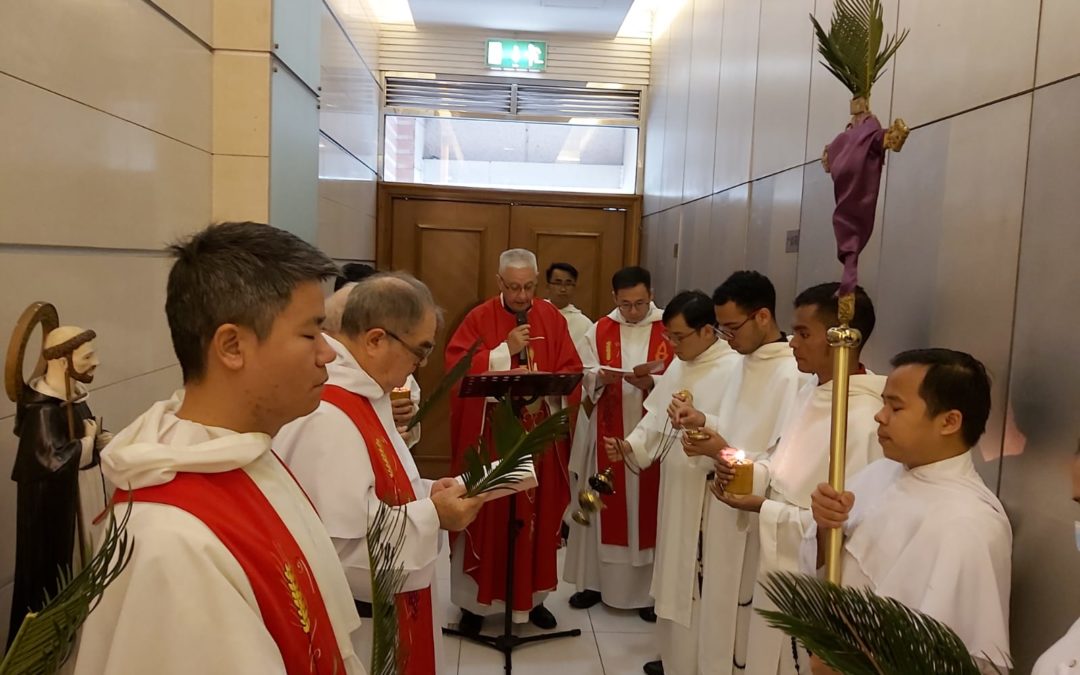
Palm Sunday
Palm Sunday marks the beginning of Holy Week, a time when the Church solemnly commemorates the events leading to Christ’s Passion and Resurrection. The day is filled with contrasts, as joyful acclamations at Jesus’ entrance into Jerusalem quickly turn into cries of “Crucify him!”. This twofold mystery reminds us of the humility and patient suffering exemplified by Christ, guiding us to follow His example. Jesus, through His obedient trust in the Father, teaches us to face difficulties with peace and confident abandonment of God’s will.
The liturgy of Palm Sunday emphasizes the paradox of Jesus willingly giving Himself up to His Passion out of love for humanity. He accepted His fate with free obedience and infinite love, demonstrating that His sacrifice was a conscious choice rather than a result of external forces. This act of self-giving love is a central theme of Palm Sunday, inviting us to reflect on our own response to sin and the redemption offered through Christ’s sacrifice.
As we enter Holy Week through the gateway of Palm Sunday, we are called to journey with Jesus towards the Cross, where He will offer the gift of redemption to all humanity. The crowds accompanying Jesus to Jerusalem, including the blind man, express Messianic hope and anticipation of God’s kingdom. This anticipation echoes in our hearts as we contemplate the significance of Christ’s entry into Jerusalem and the fulfilment of Scripture through His Passion and Resurrection.
The readings today invite you to reflect deeply on the passion of the Lord as presented in the readings of the day. The first reading from Isaiah 50:4-7 portrays the suffering servant who endures humiliation and physical pain yet remains steadfast in faith and obedience to God. This passage foreshadows the ultimate sacrifice that Jesus, the true suffering servant, will make for all of humanity on the cross.
In the second reading from Philippians 2:6-11, we encounter a profound reflection on the mystery of the Incarnation and the humility of Christ. Jesus, though in the form of God, emptied himself and took on human form, obediently accepting death on the cross. This self-emptying love of Christ is at the heart of the Christian faith and serves as a model for us to emulate in our own lives.
The Gospel reading from Mark 14:1-15:47 recounts the detailed narrative of Jesus’ passion, from the betrayal by Judas to the crucifixion and death of Jesus on the cross. This account challenges us to confront the reality of sin and the depth of God’s love for us, demonstrated through the sacrifice of His Son for our redemption.
As we meditate on these readings, we are called to enter into the mystery of Christ’s passion with humility, gratitude, and repentance. Palm Sunday marks the beginning of Holy Week, a time of intense reflection on the suffering and death of Jesus, leading to the joy of His resurrection on Easter Sunday. Let us walk alongside Jesus in His passion, acknowledging our own sins that contributed to His suffering and embracing the hope and redemption that His sacrifice offers to all humanity. May we carry the message of Christ’s love and mercy in our hearts as we journey through Holy Week towards the celebration of His glorious resurrection?
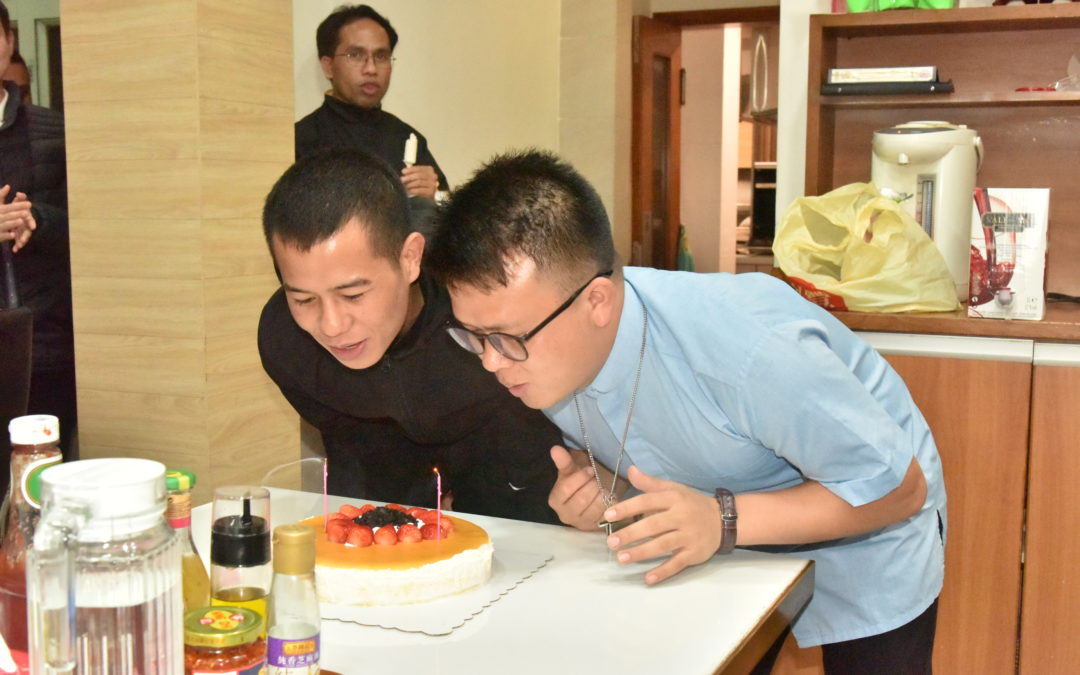
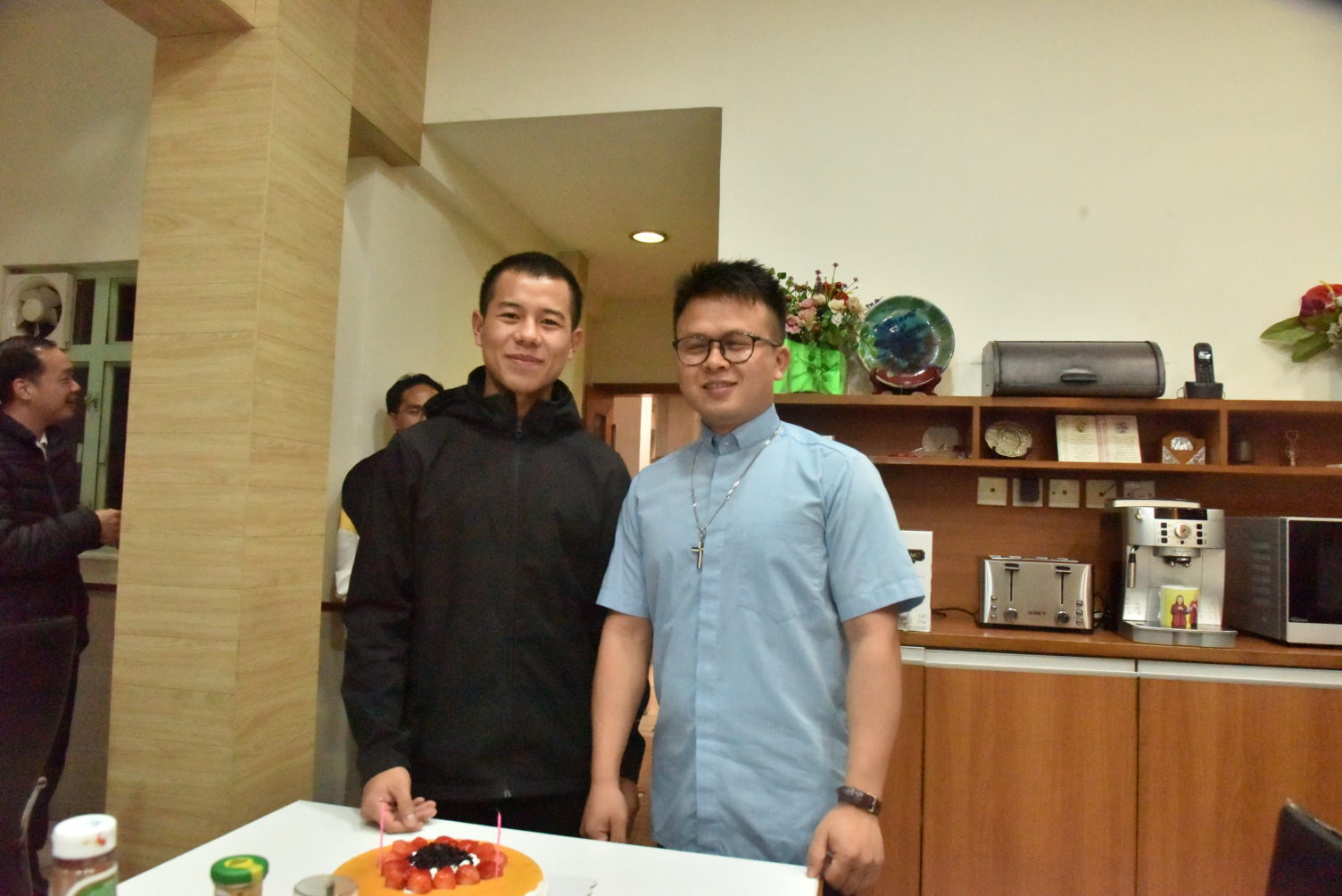
The Priory celebrated the birthdays of February-born brothers.
The celebrants were Br. Francis Therman, O.P and Br. John Theresan, O.P. The community greeted them with the warmest wishes.
It was a joyous occasion that brought everyone together in celebration of community life and fraternity.
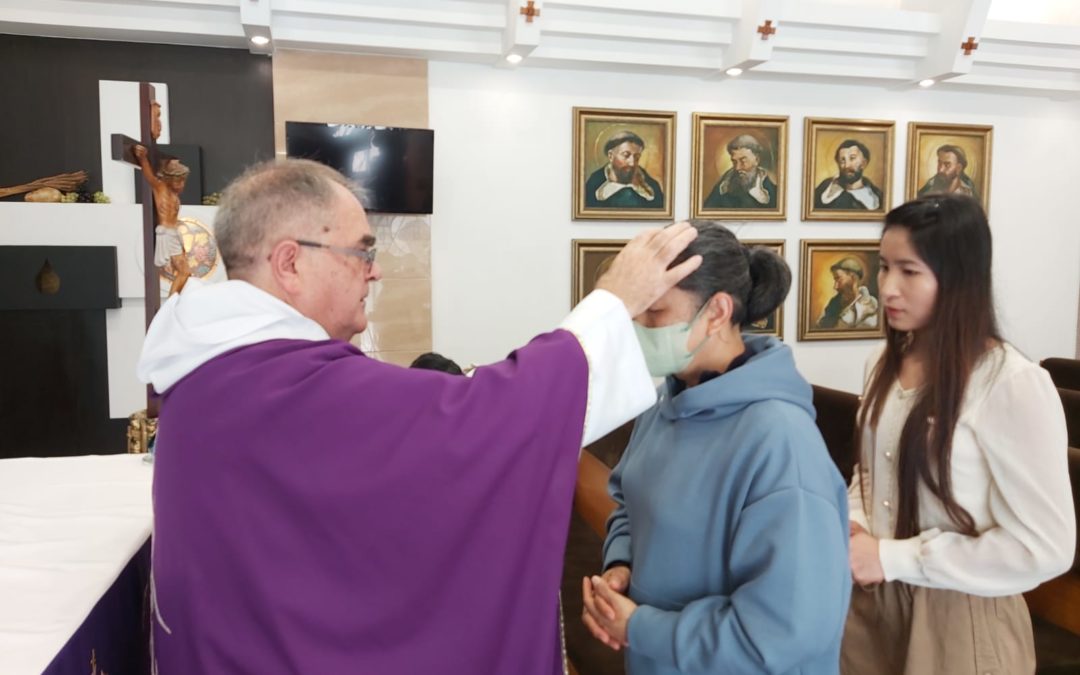
Lent is a period of forty days before Easter Sunday, during which we are invited to prepare ourselves for the celebration of Jesus’ resurrection. It is a time of penance, fasting, and prayer to remind us as believers of Jesus’ own forty-day fast before His Passion. During Lent, we are called to repent, believe in the Gospel, and focus on prayer, penance, fasting, and generous aid to others as means of entering into a renewal of spirit and community. The season of Lent precedes and prepares for Easter, serving as a time to hear the Word of God, convert, prepare for Baptism, reconcile with God and one’s neighbour, and engage in prayer, fasting, and good work. Lent is also a time for more intense prayer, interceding for those in need, and cultivating a lifestyle of sharing and responsibility.
Why Lent is Important for our Conversion?
Spiritual Preparation: Lent is a period of 40 days of prayer, fasting, and almsgiving that mirrors Jesus’ 40 days of fasting in the desert. It is a time for spiritual preparation, reflection, and repentance in anticipation of Easter, the most important feast of the Christian calendar.
Repentance and Conversion: Lent is a time for believers to turn away from sin, seek forgiveness, and grow closer to God. Through practices such as fasting, prayer, and almsgiving, Christians strive for personal conversion and spiritual renewal.
Mourning Christ’s Passion: Lent provides an opportunity for Christians to reflect on and mourn the suffering and sacrifice of Jesus Christ. By meditating on Christ’s Passion, believers deepen their appreciation for the immense love and mercy demonstrated by his death on the cross.
Renewal of Baptismal Promises: Lent is a time for Catholics to prepare for the renewal of their baptismal promises at the Easter Vigil. Through prayer and penance, believers recommit themselves to living out their faith and following the teachings of Christ.
Preparation for Easter: Lent culminates in the celebration of Easter, the most important feast in the Christian calendar. By observing Lent, Christians are better prepared to fully participate in the joy and significance of Christ’s resurrection on Easter Sunday.
Overall, Lent is a time for deepening faith, seeking reconciliation with God, and renewing commitment to living a life in accordance with Christian values. It is a season of spiritual growth, self-examination, and preparation for the celebration of the central mystery of the Christian faith, the Resurrection of Jesus Christ.
During the period of Lent we are encouraged to practice of:
Prayer: Lent is a time for intense prayer, where believers are called to turn to God with confidence, enter into communion with Him, and intercede for those in need.
Fasting: Fasting during Lent should not be a mere formality but a practice that challenges one’s sense of security, benefits others, and cultivates a lifestyle of sharing and caring for those in need. It involves choosing a sober lifestyle, avoiding wastefulness, and attuning hearts to the essentials and sharing.
Almsgiving: This practice represents a specific way to assist those in need, an exercise in self-denial to free oneself from attachment to worldly goods, and a means to respond to the needs of others through divine goodness. Almsgiving helps believers overcome the temptation of material riches and fosters a spirit of sharing with others.
The work of Charity: Alongside prayer and fasting, engaging in works of charity is emphasised during Lent. These works of charity are seen as pleasing worship to God and serve as a reminder of the need for a more just distribution of goods, allowing everyone to live in dignity and protecting creation.
Therefore, during the period of Lent, we are called to participate in prayer, fasting, almsgiving, and works of charity to deepen our relationship with God, grow in selflessness, and prepare our hearts for the celebration of Easter.
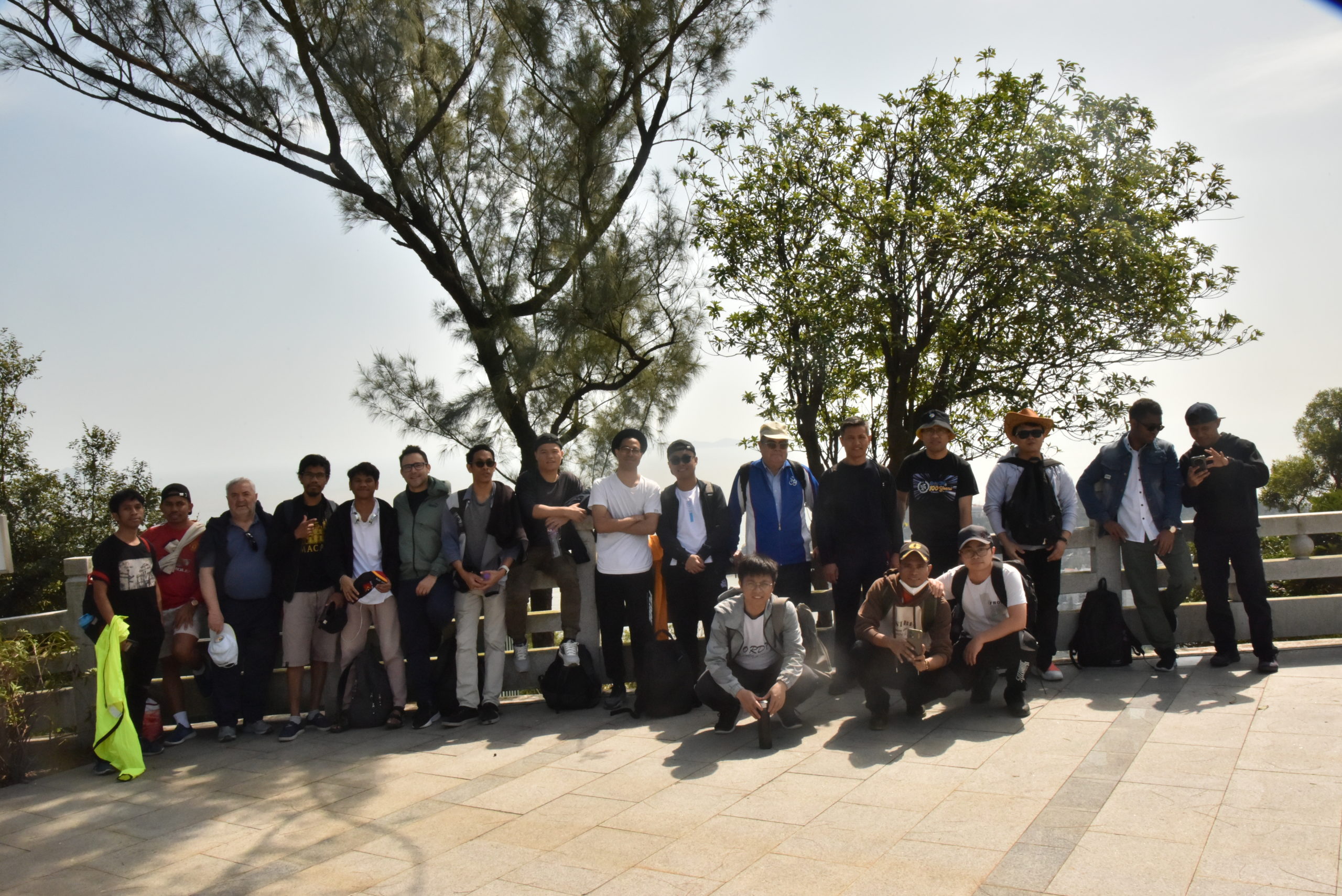
Because the Lunar New Year holiday was long enough to unwind, the fathers and brothers went trekking at A-Ma mountain on February 12, 2024. Tianhou Palace and the monument of Goddess A-Ma are the landmarks of A-Ma Mountain, which is located atop Dieshi Mountain, Macau’s highest point. Upon reaching the peak, images were shot at Instagrammable locations. Later on, hungry stomachs were satisfied with a scrumptious lunch.

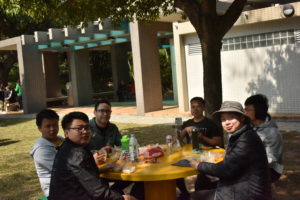
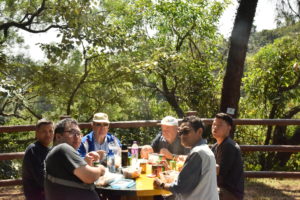

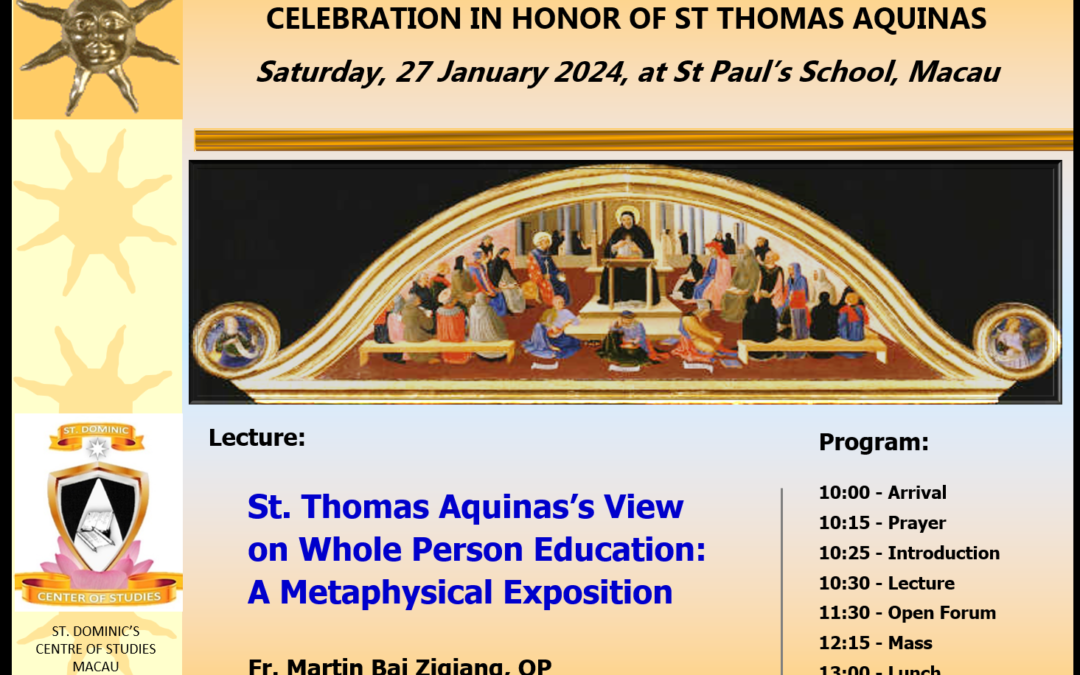
Every year, around January 28, the Dominican Family in Macau gather together to celebrate the feast of our brother St Thomas Aquinas. The program normally consists of a lecture, Mass and a lunch together. It is organized by our Centre of Studies, and the venue has normally been St Paul’s School. This year 2024 the celebration took place on the 27 of January, Saturday. The guest lecturer was our Chinese Dominican brother Martin Bai Ziqiang, who graciously accepted our invitation. The chosen topic for the lecture was on St Thomas’s concept of integral education from a metaphysical point of view. It was a very appropriate theme for the audience whose majority were brothers and sisters in formation. Perhaps for this reason its contents were easily understood by all, as shown in the lively exchange of questions and answers during the open forum that followed the lecture. It was a fortunate coincidence that this year we had with us our Provincial Regent of Studies, Fr Mario Jabares, who willingly took an active role in the program: he introduced the lecture and the speaker, coordinated the open forum and closed the academic part of it. He also presided over the Mass and gave an inspiring homily related to the relevance that the figure of St Thomas Aquinas has in the Church today. A lunch crowned this activity, putting a joyful tone to the occasion and giving us the opportunity to share the joy of being together as a family. As Dominicans, we are proud to have St Thomas as our brother and we are grateful to God for having giving him as a gift to the Order and to the Church.
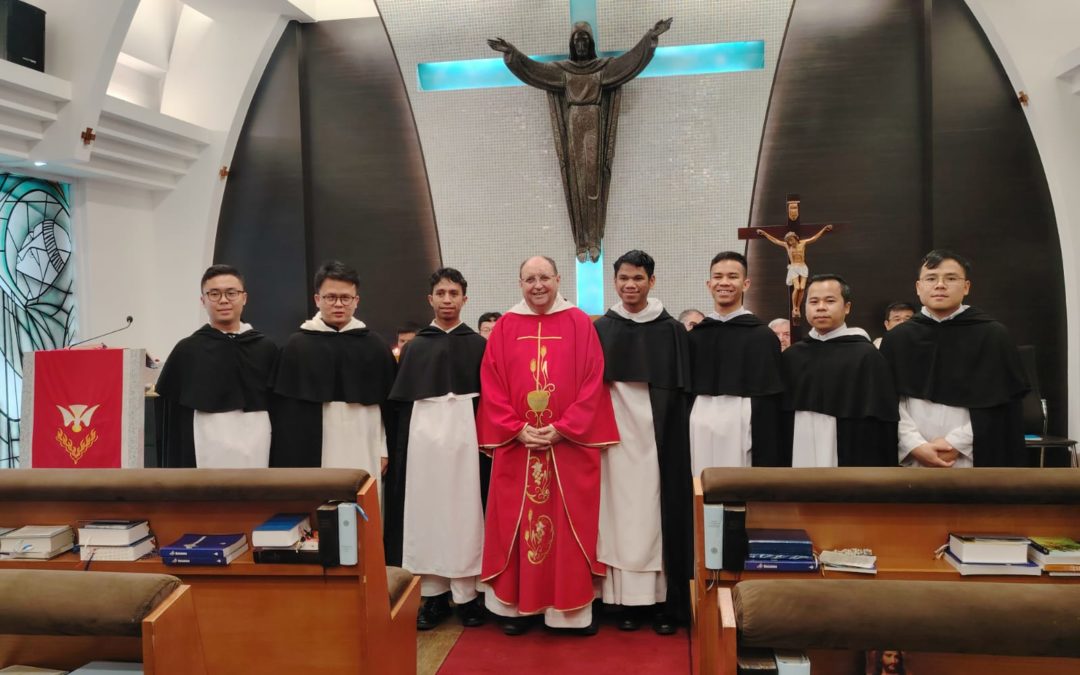
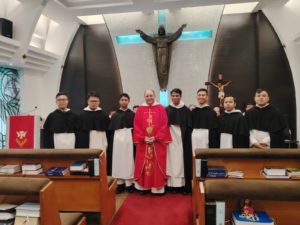
On 20th January 2024, seven young friars made the renewal of their religious vows at the Chapel of St. Dominic in Macau. The Prior Provincial of Our Lady of the Rosary Province, Fr. Rubén Martínez Ortega, O.P, received their vows in place of Fr. Gerard Francisco P. Timoner III, O.P., Master of the Order of Friar Preachers. The solemn celebration was integrated within the conventual Holy Mass. Let us remember them in our prayers!
May the Lord continue His work till the end!


